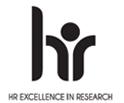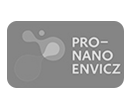78th ESFRI Forum Plenary
The 78th ESFRI Forum Plenary was held virtually on 6 December 2021. For the last time, it was chaired by Jan Hrušák closing his three years’ ESFRI chair mission (2019-2021).
Launching of HE Missions
Apostolia Karamali, (European Commission, a head of unit R&I Actors and Research Careers, RTD.A.3) gave a presentation on EU Missions, a new way to bring concrete solutions to some of our greatest challenges having ambitious goals to deliver concrete results by 2030. They will deliver impact by putting research and innovation into a new role, combined with new forms of governance and collaboration, as well as by engaging citizens. EU Missions are a novelty of the Horizon Europe research and innovation programme for the years 2021-2027 targeting on cancer, adaptation to climate change, climate-neutral and smart cities, ocean restoration and soil deal for Europe. The European Commission launched the Missions on 29 September 2021. The announcement of a comprehensive approach that brings the impact of a new role for research and innovation has encouraged the debate. Ms Karamali stated that “the research infrastructures (RIs) can play an important role in implementing Missions by exploring services for supporting their objectives. Individual RIs and their umbrella organisations should connect to the specific communities that are currently gathering around Missions”.
Pact for Research and Innovation in Europe
Anna Panagopoulou (European Commission, director of European Research Area & Innovation at the Research and Innovation Directorate-General) brought attention to the latest development in the context of ERA. The Council of the EU adopted Recommendation on A Pact for Research and Innovation in Europe and the Conclusions on the future governance of the ERA. The Pact defines common values and principles for research and innovation in Europe such as freedom of scientific research in free circulation of researchers and knowledge. It outlines 16 shared priority areas for joint action, ranging from fostering open science for faster sharing of knowledge and data, to reinforcing the scientific leadership and excellence of the EU, with the involvement of all European regions and citizens. “Most of the Actions of the ERA policy agenda are relevant for the RIs, especially the Action 8 Strengthen sustainability, accessibility and resilience of RIs in the ERA” highlighted by Ms. Panagopoulou
At the same time, the conclusions of the Council include the first ERA Policy Agenda, setting out 20 voluntary actions for the next three years. Among these actions are support of the international market for knowledge, increasing society’s participation in the ERA, improvement of the access to research and innovation excellence and advancing research and innovation and reforms. Ms. Panagopoulou concluded that “the Pact and the Conclusions set out a new vision and priorities, confirmed by the EU's and Member States' commitment to the ERA and set up a new structure for its management”.
The assessment on the implementation of the ERIC Regulation presented by Carlo Rizzuto, ESFRI chair (2006-2008)
So far, 23 ERICS established have been producing excellent science, well connected to Innovation and strengthening the ERA and training. 19 ERICs are distributed covering all fields of science connecting hundreds of research institutions and universities open to external users. Recommendations of the Report target on 1) enhancing the scientific capability of the ERA; 2) overcoming fragmentation, improving coordination and reinforcing governance and sustainability; 3) improving links with society, economy and competitiveness and 4) strengthening the global approach. The key players are playing an important role, the ESFRI a strategic role, ERIC committee management role and EC catalytic role. Bottom-up discussion on data collection and making legal forms to be more effective and understandable for the Member States is essential.
France outlines plans for EU presidency in 2022
France will hold the Council of the European Union presidency from 1 January to 30 June 2022. Following the Portuguese and then Slovene presidencies in 2021. The French Ministry for Higher Education, Research and Innovation define 3 priority axes: 1) Implementation of the knowledge square to strengthen the synergy of 4 components (higher education, research, innovation and services to society); 2) Young Europe serving the future generations to build up the feeling of European identity by supporting the development of the alliances of European Universities till 2030; and 3) Global Europe to structure the international dimension of the European policy in ERA. France will host the 79th ESFRI Forum Plenary (23-24 March 2022) and the Conference of 20 years’ celebration of ESFRI (25 March 2022).
New Executive Board members and Work Groups Chairs appointed
Following the Call for Candidates for the new mandate of the ESFRI Executive Board and Working Group Chairs, issued on 10 September 2021, all nominations were analysed, in line with the Terms of Reference of the Call. The applications received for the Executive Board allow the same number of members that proved to be effective and efficient. A new Executive Board for the term 2022-2023 composed of the new ESFRI Chair, the European Commission representative and other 8 members were appointed (Karina Angelieva, Odd Ivar Eriksen, Inmaculada Figueroa, Elena Hoffert, Yannis Ioannidis, Gelsomina Pappalardo, Michael Ryan, and Peter Wenzel-Constabel).
Furthermore, seven Working Group Chairs were appointed (Implementation Group: Jeannette Ridder Numan; Energy: Minh Quang Tran; Environment: Jean Marie Flaud; Health & Food: Lucia Banci; Physical Science & Engineering: Kristiaan Temst; Social & Culture Innovation: Georg Lutz). The set of new Executive Board and Working Group Chairs reached a good gender balance and adequate European coverage.
Jan Kolar, a new ESFRI chair elected for the period of 2022-2023, warmly welcomed new members of the Executive Board and WG chairs as well as the two ESFRI vice-chairs appointed, Inmaculada Figueroa and Peter Wenzel-Constabel. Jan Hrušák has expressed that “the composition of these bodies will successfully contribute to the ESFRI mission”.
3rd ESFRI-EOSC Exchange of Experiences workshop on RIs and EOSC
The Exchange of Experiences workshop on RIs and EOSC will be held on 25-26 January 2022 as a hybrid event, if circumstances allow, at the premises of France. As the follow-up workshop of the 2nd ESFRI RIs-EOSC Workshop “Research Infrastructures shaping EOSC”, it focuses on the connection of RIs to EOSC, both ESFRI and other world-class RIs. The Workshop is organized thanks to the ESFRI Task Force on EOSC and StR-ESFRI 2 project. Jan Hrušák appreciated the entire work of the ESFRI Task Force. “This informal group had been contributing to the policy discussion with valuable inputs to the ESFRI Roadmap process as well as strategic papers such as ESFRI White Paper”.
ESFRI chair handover the chairmanship
RIs are an essential component not only for ESFRI but especially for Jan Hrušák’s long-term works. His ambition is that the RIs are understood not only as the carnal element to interconnect science, training and business contributing to the solution of the society's challenges but also as a strategic investment. Jan Hrušák has been advocating the RIs role in sectoral policies, in the research development and contribution to European cohesion. “RIs are a part of the critical infrastructures of economies. RIs are key players to restore a sustainable environment and healthy development of global social welfare”. During the three years’ mandate, Jan Hrušák put a lot of effort into the implementation of the joint vision formulated by ESFRI summarized in the ESFRI White Paper. “This strategic document is also a key pillar of ERA. The listed challenges serve not only for internal ESFRI discussions but also for ERA policy discussions. These topics will frame our future and clearly declare the ambitions and position of RIs in European excellence science”. Finally, Jan Hrušák thanked for the cooperation and support of the vice-chairs, delegates and experts, Working Group chairs, chairs of the informal working groups, European Commission, StR-ESFRI 2 project, and the Czech local support team. The chairmanship, the work done for ESFRI and the deep knowledge of Jan Hrušák was appreciated by the entire ESFRI Plenary as well as by the new coming ESFRI Chair Jana Kolar. “The Roadmap 2021 released is the most comprehensive document on RIs. Thanks to the Stakeholder Forum ESFRI became more open to society”. Anna Panagopoulou also thanked the current ESFRI chair Jan Hrušák for his work done for ESFRI and excellent collaboration established with EC over the last three years and hopes this will continue in the next ESFRI period of the new chair.

















